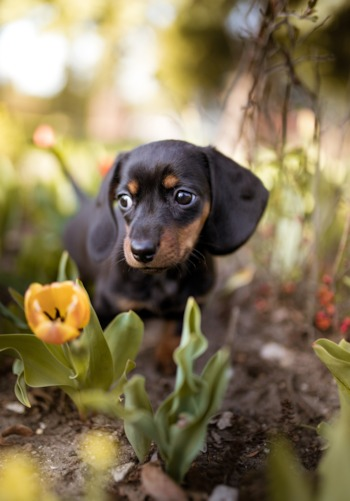Dachshund Breed Info


Unravel the mystery of the Dachshund, a captivating breed that originated in Germany as a formidable hunting dog. Today, Dachshunds are treasured for their loving nature, unwavering loyalty, and lively spirit. Their unmistakable long bodies and short legs give them a unique charm that sets them apart from other breeds. With choices in size and coat type, the adaptable Dachshund can be the perfect companion for a wide range of families and lifestyles.
Dachshunds are known for their affectionate nature, forming strong bonds with their families. They are incredibly loyal and enjoy spending time with their loved ones, often seeking out opportunities to cuddle or sit on their laps. This loyalty also means that they can be protective, sometimes barking at strangers or other animals they perceive as threats.
Characteristics
- Dachshunds exhibit a level of bravery that is impressive for their size, facing challenges head-on.
- These dogs form strong bonds with their owners, providing unwavering companionship and devotion.
- Dachshunds possess a vibrant and energetic personality, making them delightful and engaging pets.
- Their intelligence is a standout quality, although it can sometimes lead to training difficulties if not properly addressed.
- Dachshunds are known for their determined nature, which may necessitate a patient and consistent approach during training.
- This breed is celebrated for its gentle and affectionate character, fostering deep emotional connections with its family members.
- Dachshunds are highly observant of their environment and make excellent watchdogs, always prepared to alert their owners to any potential issues.
- They can thrive in a variety of living situations, making them an ideal fit for a wide array of households.

Appearance
The most distinctive aspect of the Dachshund's appearance is its elongated body and short legs. This breed's unique proportions are a result of its historical purpose as a hunting dog, specifically designed to burrow into tight spaces in pursuit of small animals like badgers and rabbits.
The Dachshund comes in two sizes, the Standard and Miniature, catering to different preferences. Moreover, the breed also boasts three coat types: smooth, wirehaired, and longhaired, each with its own distinct look and grooming requirements.
Dachshunds display a wide range of colors and patterns, including solid colors, dappled, brindle, and piebald patterns. This diversity in appearance adds to the breed's appeal, as there's a Dachshund to suit every taste.
Photos
Temperament
The dachshund, a breed with a distinct elongated body and short legs, has won the hearts of dog lovers around the world. Affectionately called the "sausage dog" or "wiener dog," the dachshund is renowned for its unique temperament that combines courage, intelligence, and playfulness.
Intelligent and Stubborn: One of the defining characteristics of the dachshund is its intelligence. Originally bred as a hunting dog, the dachshund needed to be resourceful and quick-witted to excel in its role. However, this intelligence can sometimes translate into stubbornness, making the breed a bit challenging to train. Consistent, patient, and positive reinforcement-based training methods are essential to help dachshunds learn and thrive.
Lively and Playful: The dachshund is a lively and playful breed, always eager to engage in fun activities with its human companions. This energy makes them excellent playmates for children and keeps their families entertained with their antics. However, due to their small size and elongated body, it's essential to supervise playtime to prevent injuries.
Alert and Courageous: Despite their small size, dachshunds possess an innate courage that can be traced back to their hunting roots. They are alert and aware of their surroundings, making them excellent watchdogs. While their size doesn't make them an ideal guard dog, their barking can serve as an effective alarm system to alert their owners of potential
Insights

Dachshund vs Pembroke Welsh Corgi Comparison
When you think of charming, short-legged dogs with a ton of personality, two breeds likely come to mind: the Dachshund and the Pembroke Welsh Corgi. These two breeds, each with its unique history and characteristics, have captured the hearts of many around the world. While they both share a low stance and are brimming with charisma, they're distinct in many ways. In this article, we'll delve deep into the world of the playful "wiener dog" and the royal Corgi, comparing and highlighting their remarkable...
Care
Grooming
Regular teeth brushing is essential for maintaining your Dachshund's dental health. Use a dog-specific toothbrush and toothpaste to gently clean their teeth at least three times a week, helping to prevent plaque buildup, gum disease, and bad breath.
Dachshunds do not require frequent baths, but, when necessary, use a gentle dog shampoo to cleanse their coat and skin. Ensure the water is lukewarm, and always rinse thoroughly to prevent skin irritation. Remember to dry them properly, especially in the ear area, to avoid infections.
Due to their floppy ears, Dachshunds are prone to ear infections. Clean your Dachshund's ears regularly using a veterinarian-recommended ear cleaner and cotton balls or gauze. Avoid inserting anything into the ear canal and consult your vet if you notice signs of infection or discomfort.
Regardless of the coat type, all Dachshunds benefit from regular brushing. Smooth-coated Dachshunds need a weekly brush with a soft-bristle brush or grooming mitt, while wirehaired Dachshunds require at least twice-weekly brushing with a slicker brush or comb. Longhaired Dachshunds need daily brushing with a pin brush or comb to prevent tangles and mats.
Exercise Needs
Because Dachshunds were bred for hunting, they have a natural drive for physical activity. To tap into this energy, consider enrolling your Dachshund in dog sports, such as agility or nosework. These activities are not only fun for your pet but also help improve their physical fitness and mental alertness.
To further diversify your Dachshund's exercise routine, try incorporating short hiking trips or nature walks. These outings offer a change of scenery, allowing your dog to explore new environments and experience various terrains.
Another way to engage your Dachshund is by incorporating training sessions into their daily routine. Regular training provides both mental and physical stimulation, and it helps strengthen the bond between you and your pet.
Always remember that Dachshunds have a unique body structure that makes them susceptible to spinal issues. While engaging them in physical activities, choose low-impact exercises and avoid any that involve excessive jumping or twisting.
Health
Dachshunds can be predisposed to dental problems due to their small mouths and crowded teeth, making routine dental care essential. Other health concerns to monitor for include obesity, diabetes, allergies, ear infections, and eye conditions. By staying informed and proactive in addressing these health concerns, you can contribute to your Dachshund's overall well-being and ensure a happy, healthy life for your beloved pet.
Lifespan
Dachshunds are a robust and healthy breed, and when bred carefully, they can exceed their average life expectancy of 12-16 years. With proper care and attention, they can live long and fulfilling lives, sometimes reaching up to 20 years or more. This is a testament to the breed's resilience and hardiness.
When bred by reputable breeders who prioritize health and longevity, Dachshunds can thrive and exceed their life expectancy. Regular veterinary check-ups, a healthy diet, and regular exercise are all essential for maintaining their health and well-being. With proper care, they can remain active and playful well into their senior years, bringing joy to their owners for years to come.
Dachshunds are also known for their resilience, and they often recover quickly from illnesses or injuries. This is due in part to their strong immune systems and natural hardiness. With the right care, they can maintain their health and vitality throughout their lives, ensuring that they continue to be a beloved companion for many years.
Training
Dachshunds are a breed that is not only intelligent but also highly trainable. They have a natural ability to learn tricks, games, and sports with ease, which makes them popular among dog owners and trainers alike.
Their small size and agility make them well-suited for a wide range of activities and sports, including agility, obedience, and rally. They also excel at learning fun tricks and games, such as fetching, hide-and-seek, and even dance routines.
Positive reinforcement is a particularly effective training method for Dachshunds. Praising and rewarding good behavior can help encourage them to continue to exhibit that behavior, and it can also make training a fun and enjoyable experience for both you and your furry friend.
It's important to note that Dachshunds do have a stubborn streak, which can make training challenging at times. However, with patience, consistency, and love, they can be trained successfully and can become well-behaved, obedient companions.
History
The dachshund, a small breed with a distinctive elongated body and short legs, has captured the hearts of dog lovers worldwide. Affectionately known as the "sausage dog" or "wiener dog," the dachshund boasts a rich history that includes its development as a hunting dog and its rise to global prominence.
Interestingly, dachshunds were bred in different sizes to cater to specific hunting needs. The standard dachshund, known for hunting larger prey such as badgers, was the original size of the breed. As the breed evolved, the miniature dachshund emerged to target smaller game like rabbits, providing hunters with a versatile companion for various types of game.
The dachshund's roots can be traced back to 15th-century Germany, where the breed was initially developed for hunting purposes. The name "dachshund" is a combination of the German words "Dachs" (badger) and "Hund" (dog), highlighting its primary role as a badger hunter. The breed's unique physical traits, such as its short legs and elongated body, were specifically engineered to allow it to navigate through narrow tunnels and dens in pursuit of its quarry.
As the dachshund's reputation as a skilled hunting dog grew, the breed's popularity spread throughout Europe. Nobility, in particular, admired the dachshund for its hunting prowess and unique appearance. This newfound appreciation elevated the dachshund's status, and the breed soon found its way into the hearts and homes of people from various social classes.
While the dachshund's history is rooted in hunting, the breed has successfully transitioned into a cherished companion and family pet. Known for its playful, spirited personality, the dachshund has become a beloved dog breed across the globe, winning over dog enthusiasts with its charm and character.



